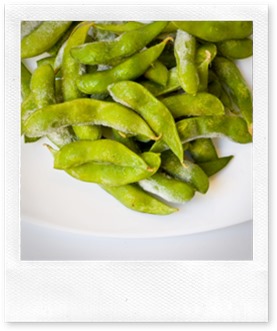 The aim of this study was to determine if long-term isoflavone soy protein (ISP) in supplement form, could affect endometrial thickness (lining of the uterus), endometrial hyperplasia (potentially precancerous cells of the lining of the uterus) and endometrial cancer in postmenopausal women.
The aim of this study was to determine if long-term isoflavone soy protein (ISP) in supplement form, could affect endometrial thickness (lining of the uterus), endometrial hyperplasia (potentially precancerous cells of the lining of the uterus) and endometrial cancer in postmenopausal women.
This randomized, double-blind, placebo-controlled trial matched 350 postmenopausal women ages 45-92 with a placebo group, for a period of 3 years. Women were randomized to take either a daily dose of 154 mg of ISP or a milk-protein placebo. The final study population was 224 women. The primary outcome measures were the average change in endometrial thickness as detected on transvaginal ultrasound from baseline up to 36 months, and the biopsy incidence of endometrial hyperplasia and endometrial cancer.
Transvaginal ultrasound was done at baseline, 18 months, 30 months and 36 months. Any woman with an endometrium greater than 5 mm was biopsied, as well as any woman with postmenopausal bleeding. In the soy group that in the end evaluated 121 postmenopausal women, 9 (7.4%) underwent endometrial biopsy based on transvaginal ultrasound. The results were benign in all of these 9 cases. In the placebo group of 103 women, 7 (6.8%) underwent endometrial biopsy and 6 of these 7 were benign with one woman diagnosed with complex endometrial hyperplasia with atypia. She then proceeded to a hysterectomy.
Commentary: Previous studies on the effect of ISP and its effect on the endometrium have been conflicting. One pilot study in 2002 demonstrated no effect but the study was small, 27 women and the duration was only 6 months. A larger 5 year study in 2004 found a small increase in endometrial hyperplasia in the soy group (5 of 6=3.8% and none in the placebo group. However, 5 of the 6 cases were simple hyperplasia with no atypia and only one case of complex hyperplasia and again, no atypia. Unfortunately, this 2004 study did not report on any cases of postmenopausal bleeding or ultrasound monitoring but instead did uniform biopsies on all women. This current study, had no effect on the thickness of the endometrium or on the rates of endometrial hyperplasia or endometrial cancer in postmenopausal women who took 154 mg/day of ISP for 3 years. The only case of endometrial hyperplasia (with atypia/precancerous cells), that did occur was in the placebo group. This confirms my comfort with daily intake of soy phytoestrogens both in the diet and in supplemental form, in postmenopausal women. This amount of 154 mg of total isoflavones per day is well above 2 servings of soy in the diet daily.

